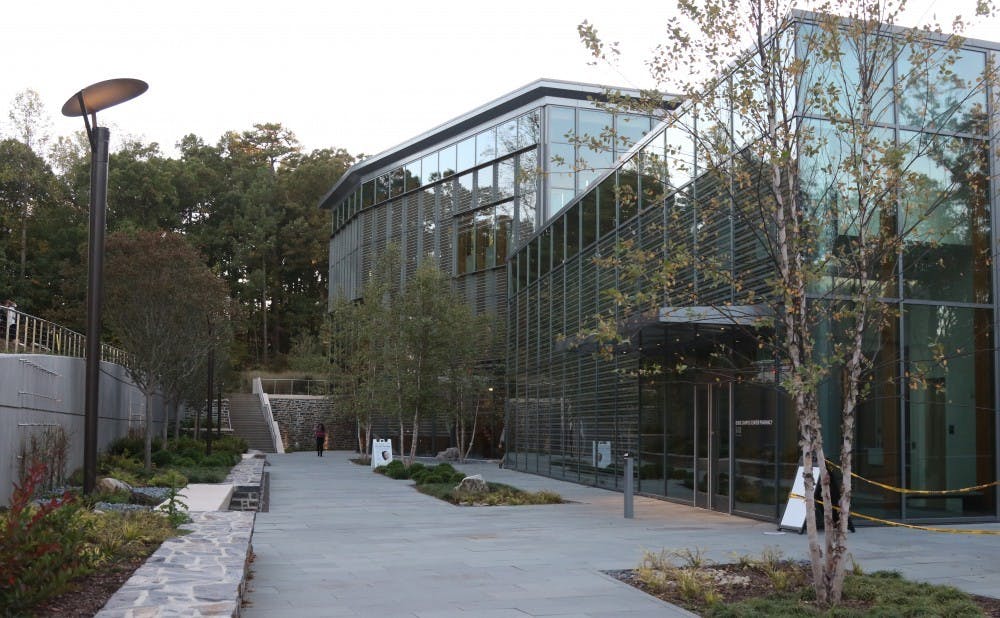Mental Health Awareness Week will occur the week of March 8, coinciding with the two-day break on Tuesday, March 9, and Wednesday, March 10.
According to an online survey of Duke undergraduates conducted in November 2020 by the Office of Undergraduate Education Research Group, students experienced increased stress, loneliness, and mental health concerns in the fall compared to previous semesters. With student continuing to struggle with mental health, and Duke Student Government took on the challenge of improving support for student wellness.
First-year Nicole Rosenzweig, DSG senator for academic affairs and co-leader of Mental Health Awareness Week, wrote in an email that through personal experiences and consulting other students, DSG concluded that “the lack of scheduled breaks during the fall semester of 2020 served as a significant source of student stress.”
“We now have survey results that support this conclusion, and we felt it was necessary for students to have some days off during the spring semester,” she wrote.
Rosenzweig wrote that DSG is taking advantage of the wellness days to provide mental health support to students throughout the entire week. The goals of MHAW are to “destigmatize conversations surrounding mental health and empower students to take active steps to support their mental health and overall wellness,” Rosenzweig wrote.
The preparation and execution of MHAW included other DSG Senators, student mental health organizations—such as Peer For You, NAMI, NeuroCare and Synapse—and identity and cultural groups—such as Mi Gente and Diya. Rosenzweig and sophomore Cynthia Dong, senator for academic affairs and co-leader of MHAW, initiated the project in November 2020, with much of the planning accomplished virtually during winter break.
In addition to an Instagram-centered social media campaign on DSG’s page, there will be many events during the week geared toward student mental health and wellness, Rosenzweig wrote.
DSG will hold its second-annual Mental Health Forum Thursday at 6 p.m. via Zoom. Rosenzweig wrote that the forum will feature panelists of administrators from Duke’s Student Wellness Center and various mental health services. Interactive breakout rooms at the event will “facilitate a dialogue between students and administrators regarding mental health,” Rosenzweig wrote.
“Mental health experiences can differ greatly from person to person, and cultural identity is often a significant factor in causing that difference,” Dong wrote in an email. “We’ve collaborated with student cultural groups on campus to offer events that keep this in mind.”
Diya is hosting a Zoom panel discussion on Mental Health in the South Asian Community Tuesday at 6 p.m. Mi Gente’s virtual Mental Health ToolKit Talk will be Wednesday at 5 p.m.
Other events during the week include Synapse’s Threshold Talk Thursday at 3 p.m. and NAMI’s Candlelight Vigil Sunday, March 14, at 6 p.m. There will also be ongoing DuWell programming—including wellness activities like yoga and guided meditation—as well as collaborations with DukeArts and DukeCreate.
Although most events are virtual due to COVID-19, students will have the opportunity to register for a socially-distanced walk through Duke Gardens Wednesday at 3 p.m.
Students can also catch Nugget—Duke’s favorite furry friend—outside of the Brodhead Center wearing a MHAW bandana. Her owner, Keith, will be sharing QR codes linked to Duke’s news Mental Health Resource Guide while walking Nugget across West Campus March 9 from 3 to 4 p.m.
The resource guide makes its debut this week, consisting of “emergency resources, Duke-specific resources, online resources, resources for maintaining wellness during the COVID-19 pandemic, and resources specific to students’ identities and experiences,” Rosenzweig wrote.
“I noticed that there are a lot of mental health resources available to Duke students, but many students don’t know about these resources and/or are wary about seeking help. Oftentimes, those who genuinely need mental health support are hesitant to seek it,” Rosenzweig wrote. This “disconnect” was a large motivator for the creation of the guide.
DSG is also working on getting students access to premium features of Headspace—an app for meditation and mindfulness. One thousand Duke students have participated in a pilot program with the app thus far, Rosenzweig wrote.
In collaboration with DukeReach, DSG is also planning to pilot an improved version of Blue Devils Care and offer student feedback on virtual mental health services.
“We’re constantly looking for ways to better support Duke students’ mental health, especially as we face a pandemic that has significantly deteriorated mental health and wellness for a variety of reasons,” Rosenzweig wote.
If you are looking for additional remote or in-person mental health resources, you can find them in guides created by The Chronicle and Duke Student Government.
Get The Chronicle straight to your inbox
Signup for our weekly newsletter. Cancel at any time.

